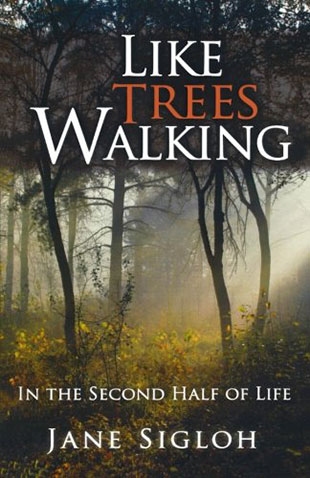"Unfortunately, forgetfulness seems to be a routine consequence of age. It goes with the territory. I like the way Billy Collins describes it:
" 'The name of the author is the first to go
followed obediently by the title, the plot,
the heartbreaking conclusion, the entire novel
which suddenly becomes one you have never read,
never even heard of,
as if, one by one, the memories you used to harbor
decided to retire to the southern hemisphere of the brain,
to a little fishing village where there are no phones.'
"We not only forget the entire novel, we forget where we put our car keys. We forget names, directions, tickets, lists, coats, hats, glasses, and gloves. But while the occasional loss of memory may be troublesome, it usually isn't of serious proportions. Well . . . maybe sometimes. I left water running in the laundry sink a few months ago – totally forgetting that I had intended to bleach some old towels. The water filled the sink, flowed over the counter, into the cupboards, onto the floor, down the hall, and under the bedroom rug before I discovered what I had done. It was a household disaster of considerable proportions.
"And yet, it was not of considerable proportions when compared to other disasters precipitated by dementia, especially by those brought on by the most dreaded of them all – Alzheimer's.
"We don't like to talk about Alzheimer's. It's as if the very mention of the word might invoke demons. David Shenk, author of the insightful book called The Forgetting, writes that:
" 'The fear of Alzheimer's is the fear of losing your identity while your healthy body walks on into oblivion. It is the fear of becoming a ghost. . . . So we avoid it. We don't read the books; we don't ask the questions; we don't visit our newly diagnosed neighbor. . . . But of course we can't truly avoid it. Alzheimer's penetrates every aging adult's consciousness just as it penetrated Aristotle's and Swift's and Tolstoy's. It seizes those who've seen it up close and those who've never given it an attentive thought. It creeps into our dreams.'
"Apparently the disease attacks the cortex of the brain forming bundles of tangled plaque that inhibit conversation between the neurons, and the older we get, the more likely we are to become victims. There is, at the present time, no cure, and the cost of nursing care can run to the tens of thousands of dollars every year.
"Alzheimer's – Good Lord, deliver us.
"Victims of Alzheimer's lose their history. They lose the touchstones to their imagination and those bright shining moments when the world was full of laughter. They lose places where they walked between the drifts of windswept winter. They lose faces they once held between their hands. They lose the self. And we have to watch them walk on into oblivion. We have to stand by the side of the road and, like Ophelia, weep for minds o'erthrown.
". . . But even though the victims of the dread disease forget everything, they're never forgotten. Never. And I believe that somehow in the miracle of God's grace they can hear what Isaiah said:
" 'Can a woman forget her nursing child
or show no compassion for the child of her womb?
Even these may forget,
yet I will not forget you,
See, I have inscribed you on the palms of my hands'
(Isaiah 49: 15-16)
"I'm hoping that our loved ones will not only see their names inscribed in the palms of God's hand . . . I'm hoping they'll discover, as if by chance, a child's book of Bible stories on the table. And as their maturity unravels, I hope they open the book and find page after page of pretty pictures. Maybe someone will read aloud the story of the good shepherd who left ninety-nine sheep in order to go out and look for the one that was lost. Who walked through rain-drenched fields, over stones and spiny broom until he found it, and lifted it up, and wrapped it in his warm cloak. Then brought it all the way home where the pastures were soft and green. And the one who was lost was never lost again."
